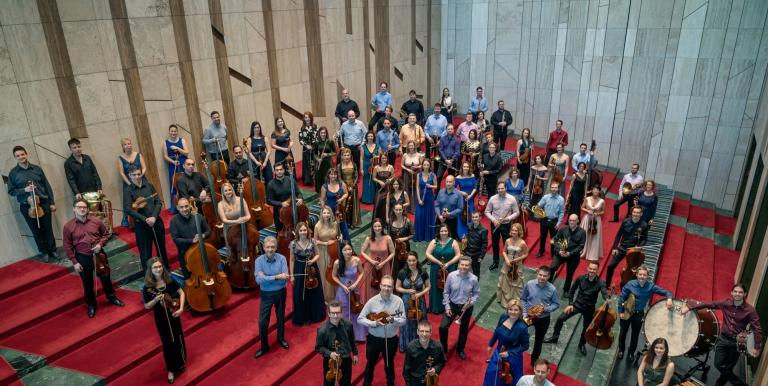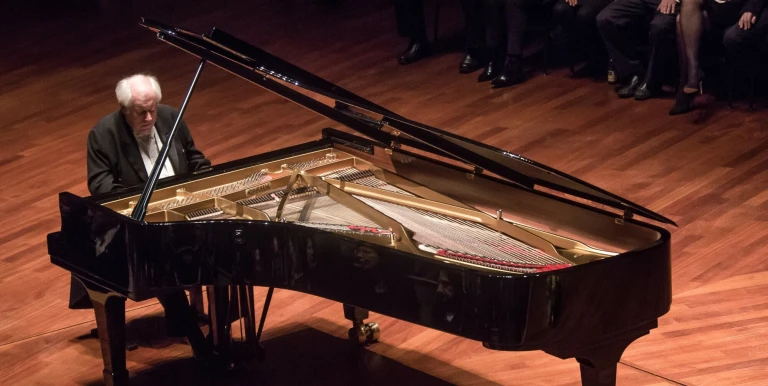Change
one interval
Change
We regret to inform you that, due to illness, Vörös Szilvia will be unable to perform in this concert, Atala Schöck is replacing her.
Thank you for your understanding!
Conductor:
Featuring:
Haydn
Symphony No. 99 in E-flat major, Hob. I:99
Mahler
Das Lied von der Erde
This concert by the Budafok Dohnanyi Orchestra will feature Mahler's Das Lied von der Erde performed with singers Atala Schöck, a soloist at the Hungarian State Opera House, and American tenor Erin Caves, who takes the stage at many European opera houses, including those of Bordeaux, Prague, Milan, Zurich, Berlin and Weimar. On this occasion, the piece will also be a tribute to Earth Day. In the first part of the concert, we will get to hear the 99th of Haydn's rich output of symphonies.
Haydn, the master of Viennese Classicism, is rightly heralded as the father of the symphony, as he composed more than one hundred works in this genre, whose original three-movement structure was transformed through his influence into four movements by inserting a minuet before the closing one. The Symphony No. 99 in E-flat major is one of the so-called London Symphonies, of which the author composed a total of twelve between 1791 and 1795 for the occasions of his visits to London. He wrote this one in 1793, and it was premièred in the British capital the following year. At the time of composing it, Haydn was already considered an elder master. Nevertheless, he still incorporated some innovations into his work. One of the novelties was his first ever use of a clarinet in a symphony, probably due to the influence of Mozart, who was much younger than he was and had already died by then. The piece begins a first movement rich in key changes, followed by the sonata-format Adagio movement, and closes with a lively finale after the minuet.
Mahler composed Das Lied von der Erde during one of the most critical periods in his life: he had lost one of his daughters not long before, his health was deteriorating, he learned he was suffering from coronary disease, and his marriage was in crisis. To lift his gloomy spirits, an acquaintance presented him with a volume of poems containing translations by Hans Bethge, a German philosopher and Germanist, based on eighth-century Chinese poems. The wisdom emanating from the poems and their melancholy tone touched Mahler so deeply that he decided to select six of the texts and compose music for them. Thus was born this 1908 song cycle, in which we find a drinking song along with songs about autumnal solitude, youth, beauty and springtime: in other words, everything that gives joy in life, but also causes suffering due to its transience. The cycle concludes with "The Farewell", which elevates the listener to a transcendentally lofty plane.
Presented by: Budafok Dohnanyi Orchestra, Müpa Budapest
-
We wish to inform you that in the event that Müpa Budapest's underground garage and outdoor car park are operating at full capacity, it is advisable to plan for increased waiting times when you arrive. In order to avoid this, we recommend that you depart for our events in time, so that you you can find the ideal parking spot quickly and smoothly and arrive for our performance in comfort. The Müpa Budapest underground garage gates will be operated by an automatic number plate recognition system. Parking is free of charge for visitors with tickets to any of our paid performances on that given day. The detailed parking policy of Müpa Budapest is available here.












